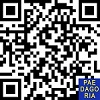LEARNING USING THE PROBLEM BASED LEARNING MODEL: ANALYSIS OF TEACHERS' UNDERSTANDING AND ABILITY IN DESIGNING LESSONS
Abstract
Abstrak: Penelitian mengenai kompetensi guru sudah banyak yang melakukan, namun penelitian yang menggali mengenai kompetensi guru dalam menyusun rencana pelaksanaan pembelajaran dengan model pembelajaran berbasis masalah (PBL) belum banyak ditrmukan. Tujuan penelitian ini adalah untuk mengetahui kompetensi guru bahasa Indonesia dalam menyusun rencana pelaksanaan pembelajaran pada pembelajaran berbasis masalah ditinjau dari segi pemahaman struktur dan deskripsi aktivitas dalam pembelajaran yang dilakukan oleh guru. Metode penelitian yang digunakan adalah analisis isi. Pengumpulan data dilakukan dengan teknik padan yaitu dengan memadankan atau mencocokkan pengembangan rencana pelaksanaan pembelajaran dengan tahapan pembelajaran PBL. Sumber data dalam penelitian ini adalah dokumen rencana pelaksanaan pembelajaran yang dihasilkan oleh guru bahasa Indonesia yang mengikuti program pelatihan pendidikan profesional guru di salah satu perguruan tinggi swasta di Indonesia. Analisis data dilakukan dengan membandingkan kesesuaian langkah dan kegiatan pembelajaran yang telah dikembangkan guru terhadap model pembelajaran PBL. Hasil penelitian menunjukkan bahwa hanya 68,97% guru yang menunjukkan kompetensi dalam menjelaskan tahapan pembelajaran berbasis masalah. Kompetensi guru dalam Mendeskripsikan aktivitas pembelajaran Berbasis Masalah dalam Rencana Pelaksanaan Pembelajaran sangat rendah. Rata-rata sebesar 36,21. Hasil penelitian ini menunjukkan perlunya peningkatan tingkat pemahaman dan kompetensi guru dalam menerapkan model PBL dalam rencana pelaksanaan pembelajarannya.
Abstract The available research on teacher competence is extensive; however, there has been no research on teacher competence in preparing learning implementation plans according to a problem-based learning (PBL) model. The purpose of this study was to understand the competence of Indonesian language teachers in preparing a learning implementation plan for problem-based learning lessons. The research method used is content analysis. Data collection was carried out using the matching technique, namely by matching the development of a learning implementation plan with PBL learning stages. The data sources in this study were 29 learning implementation plan documents produced by Indonesian language teachers who attended a professional teacher education training program at a private university in Indonesia. Data analysis was carried out by comparing the suitability of the learning steps and activities that had been developed by the teachers against the learning model for PBL. The results showed that just 68.97% of teachers demonstrated competence in describing the stages of a problem-based learning lesson. Teacher competence in describing Problem Based Learning learning activities in the Learning Implementation Plan is very low. The average is 36.21.The results of this study indicate the need for an improved level of understanding and competence among teachers in implementing the PBL model in their learning implementation plans.Keywords
Full Text:
PDFReferences
Adnan, Suwandi, S., Nurkamto, J., & Setiawan, B. (2019). Teacher competence in authentic and integrative assessment in Indonesian language learning. International Journal of Instruction, 12(1), 701–716.
Akbar, A. (2021). Pentingnya kompetensi pedagogik guru. PG: Jurnal Pendidikan Guru, 2(1), 23–30.
Alqahtani, D., Jay, C., & Vigo, M. (2022). Spatio-temporal and contextual cues to support reflection in physical activity tracking. International Journal of Human-Computer Studies, 165(October 2021), 102865.
Andina, E. (2018). Efektivitas pengukuran kompetensi guru. Aspirasi: Jurnal Masalah-Masalah Sosial, 9(2), 204–220.
Andini, D. M., & Supardi, E. (2018). Kompetensi pedagogik guru terhadap efektivitas pembelajaran dengan variabel kontrol latar belakang pendidikan guru. Jurnal Pendidikan Manajemen Perkantoran, 3(1), 148.
Anggranei, F. N. (2020). Realitas kompetensi guru pasca sertifikasi. SCIENTIFIC JOURNAL OF REFLECTION : Economic, Accounting, Management and Business, 3(4), 331–340.
Ariyana, Y., Pudjiastuti, A., Bestary, R., & Zamromi, Z. (2018). Buku Pegangan Pembelajaran Keterampilan Berpikir Tingkat Tinggi Berbasis Zonasi. Jakarta: Direktorat Jendral Guru dan Tenaga Kependidikan, 1–87.
Aslan, A. (2021). Problem- based learning in live online classes: Learning achievement, problem-solving skill, communication skill, and interaction. Computers and Education, 171(May), 104237.
Assen, J. H. E., & Otting, H. (2022). Teachers’ collective learning: To what extent do facilitators stimulate the use of social context, theory, and practice as sources for learning? Teaching and Teacher Education, 114, 103702.
Beni, S., & Fletcher, T. (2022). ‘ It ’ s not a linear thing ; there are a lot of intersecting circles ’: Factors in fl uencing teachers ’ implementation of Meaningful Physical Education. 117.
Beuchel, P., Ophoff, J. G., Cramer, C., & Hautzinger, M. (2022). Promoting occupational health and teaching quality: The impact of a mindfulness intervention in teacher training. Teaching and Teacher Education, 114(June), 103703.
Brown, G. (2022). Proposing Problem-Based Learning for teaching future forensic speech scientists. Science & Justice, 22 March.
Burgul Adiguzel, F. (2021). Examining the creative drama-based lesson plans of the prospective turkish language and literature teachers. Eurasian Journal of Educational Research, 2021(91), 205–236.
Chang, S.-H., Wang, C.-L., & Lee, J.-C. (2016). Do award-winning experiences benefit students’ creative self-efficacy and creativity? The moderated mediation effects of perceived school support for creativity. Learning and Individual Differences, 51(October), 291–298.
Cheon, S. H., Reeve, J., & Vansteenkiste, M. (2020). When teachers learn how to provide classroom structure in an autonomy-supportive way: Benefits to teachers and their students. Teaching and Teacher Education, xxxx, 103004.
Elshami, W., Taha, M. H., Abdalla, M. E., Abuzaid, M., Saravanan, C., & Kawas, S. Al. (2022). Factors that affect student engagement in online learning in health professions education. Nurse Education Today, 110(March).
Engels, M. C., Spilt, J., Denies, K., & Verschueren, K. (2021). The role of affective teacher-student relationships in adolescents’ school engagement and achievement trajectories. Learning and Instruction, 75(April), 101485.
Eyo, M., & Nkanga, E. (2020). Teachers’ competence in identifying pupils with learning disabilities: A study in Nigerian primary schools. Issues in Educational Research, 30(3), 883–896.
Fassbender, U., Papenbrock, J., & Pilz, M. (2022). Teaching entrepreneurship to life-science students through Problem Based Learning. The International Journal of Management Education, 2 July(100685).
Fung, D. (2022). Achieving individual and collaborative success: An investigation of guided group work and teacher participation in junior secondary science classrooms. International Journal of Educational Research, 111(101908).
Giuliano, C., Martirosov, A. L., Lipari, M., Wilhelm, S., Salinitri, F., Lahiri, M., & Binienda, J. (2021). Incorporating verbal defense into problem-based learning. Currents in Pharmacy Teaching and Learning, 13(2), 109–115.
Habibullah, A. (2012). Kompetensi pedagogik guru. Edukasi, 10(3), 294376.
Hastuti, T. A., Soegiyanto, Suherman, S. W., & Rahayu, S. (2022). Improving the pedagogic competenceof physical education teachers. Cakrawala Pendidikan, 41(2), 377–387.
Heilporn, G., & Lakhal, S. (2021). Fostering student engagement in blended courses: A qualitative study at the graduate level in a business faculty. The International Journal of Management Education, 19(3), 100569.
Hejji Alanazi, M. (2019). A Study of the Pre-Service Trainee Teachers Problems in Designing Lesson Plans. Arab World English Journal, 10(1), 166–182.
Hoogland, K., Koning, J. de, Bakker, A., Pepin, B. E. U., & Gravemeijer, K. (2018). Changing representation in contextual mathematical problems from descriptive to depictive: The effect on students’ performance. Studies in Educational Evaluation, 58(September), 122–131.
Jajat, S. (2020). Kompetensi guru di masa pandemi covid-19. Jurnal Riset Ekonomi dan Bisnis, 13(1), 100–110.
Keh, C., Yong, M., & Chong, P. S. (2022). A qualitative study about engagement in a school-based prevention programme for secondary school students. Mental Health & Prevention, 26(June).
Koberstein-Schwarz, M., & Meisert, A. (2022). Pedagogical content knowledge in material-based lesson planning of preservice biology teachers. Teaching and Teacher Education, 116(103745).
König, J., Krepf, M., Bremerich-Vos, A., & Buchholtz, C. (2021). Meeting Cognitive Demands of Lesson Planning: Introducing the CODE-PLAN Model to Describe and Analyze Teachers’ Planning Competence. The Teacher Educator, 56(4), 466–487.
Kuril, S., Gupta, V., & Chand, V. S. (2021). Relationship between negative teacher behaviors and student engagement: Evidence from India. International Journal of Educational Research, 109(June), 101858.
Lamb, C. R., Guerra, S., & Sorensen, M. J. (2022). Qualities of excellent resident and attending teachers recognized by medical students: A qualitative analysis of nominations for surgical clerkship teaching awards. The American Journal of Surgery, 224(1), 552–556.
Lee, J., & Son, H. K. (2022). Effects of simulation problem-based learning based on Peplau's Interpersonal Relationship Model for cesarean section maternity nursing on communication skills, communication attitudes and team efficacy. Nurse education today, 113, 105373.
Li, X., Xie, F., Li, X., Li, G., Chen, X., Lv, J., & Peng, C. (2020). Development, application, and evaluation of a problem-based learning method in clinical laboratory education. Clinica Chimica Acta, 510(August), 681–684.
List, A., Du, H., & Wang, Y. (2019). Understanding students’ conceptions of task assignments. Contemporary Educational Psychology, 59(September), 101801.
Lonergan, R., Cumming, T. M., & O’Neill, S. C. (2022). Exploring the efficacy of problem-based learning in diverse secondary school classrooms: Characteristics and goals of problem-based learning. International Journal of Educational Research, 112(101945).
Mendoza, N. B., Cheng, E. C. K., & Yan, Z. (2022). Assessing teachers’ collaborative lesson planning practices: Instrument development and validation using the SECI knowledge-creation model. Studies in Educational Evaluation, 73(June).
Miskiah, M., Suryono, Y., & Sudrajat, A. (2019). Integration of information and comunication technology into islamic religious education teacher training. Cakrawala Pendidikan, 38(1), 130–140.
Ndihokubwayo, K., Byukusenge, C., Byusa, E., Habiyaremye, H. T., Mbonyiryivuze, A., & Mukagihana, J. (2022). Lesson plan analysis protocol (LPAP): A useful tool for researchers and educational evaluators. Heliyon, 8(1).
Nuryani, D., & Handayani, I. (2020). Kompetensi guru di era 4.0 dalam meningkatkan mutu pendidikan. Prosiding Seminar Nasional Pendidikan Program Pascasarjana Universitas Pgri Palembang 10 Januari 2020, 224–237.
Peng, Y., Li, Y., Su, Y., Chen, K., & Jiang, S. (2022). Effects of group awareness tools on students’ engagement, performance, and perceptions in online collaborative writing: Intergroup information matters. The Internet and Higher Education, 53(April).
Rieger, K. L., Mitchell, K. M., Bolianatz, J., Rabbani, R., Harder, N., Balneaves, L. G., Armah, N., & Martin, D. (2021). Evaluating the impact of an arts-based multimedia knowledge translation assignment on undergraduate nursing students. Nurse Education Today, 105(June), 105030.
Rodrigue, P., & Enama, B. (2021). Student Teachers ’ Competence in Lesson Planning During Microteaching. 10(3), 341–368.
Salavera, C., Usán, P., & Teruel, P. (2019). Contextual problems, emotional intelligence and social skills in Secondary Education students. Gender differencesProblèmes contextuels, intelligence émotionnelle et compétences sociales chez les élèves de l’enseignement secondaire. Différences entre les s. Annales Médico-Psychologiques, Revue Psychiatrique, 177(3), 223–230.
Santri, N. F. (2017). Hubungan kompetensi pedagogik dengan motivasi dan hasil belajar siswa SMA Negeri di Watampone. Jurnal Biotek, 5(1), 240–255.
Sherly, S., Dharma, E., & Sihombing, H. B. (2021). Merdeka belajar: kajian literatur. In UrbanGreen Conference Proceeding Library, 183–190.
Silvola, A., Näykki, P., Kaveri, A., & Muukkonen, H. (2021). Expectations for supporting student engagement with learning analytics: An academic path perspective. Computers and Education, 168(September 2020).
Sudaryanto. (1993). Metode dan Aneka Teknik Analisis Bahasa. Yogyakarta: Duta Wacana University Press.
Susanto, R. (2021). Pemetaan kompetensi pedagogik dalam keterkaitan dimensi pengetahuan pedagogik dan profil karakteristik awal. JPPI (Jurnal Penelitian Pendidikan Indonesia), 7(1), 164–171.
Tang, S. Y. F., Wong, A. K. Y., Li, D. D. Y., & Cheng, M. M. H. (2020). Millennial generation preservice teachers’ intrinsic motivation to become a teacher, professional learning and professional competence. Teaching and Teacher Education, 96(November). 103180.
Vennebo, K. F., & Aas, M. (2020). A supportive tool for principals in guiding professional group discussions. Educational Research, 62(3), 266–283.
Wahyuddin, W. (2017). Headmaster leadership and teacher competence in increasing student achievement in school. International Education Studies, 10(3), 215.
Zhang, Z. (Victor), & Hyland, K. (2022). Fostering student engagement with feedback: An integrated approach. Assessing Writing, 51(November 2021), 100586.
DOI: https://doi.org/10.31764/paedagoria.v15i4.26001
Refbacks
- There are currently no refbacks.
Copyright (c) 2024 Imam Safi'i, Somariah Fitriani

This work is licensed under a Creative Commons Attribution-ShareAlike 4.0 International License.
Paedagoria : Jurnal Kajian, Penelitian dan Pengembangan Kependidikan
Fakultas Keguruan & Ilmu Pendidikan | Universitas Muhammadiyah Mataram.
_______________________________________________
 | Paedagoria : Jurnal Kajian, Penelitian dan Pengembangan Kependidikan |
______________________________________________
CURRENT INDEXING:
EDITORIAL OFFICE:


















